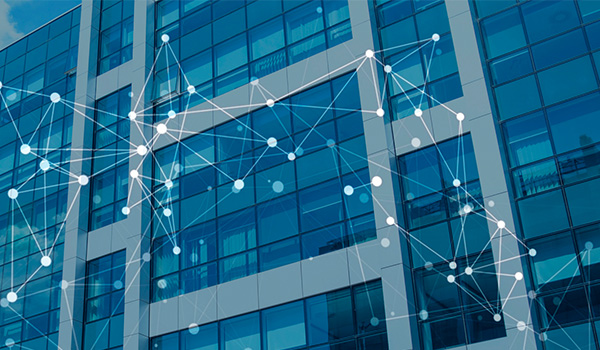Navigating the Legal Landscape: Smart Buildings in Commercial Real Estate
By: Sheridan DeJong

In the rapidly evolving landscape of commercial real estate, the integration of smart building technologies has become a game-changer. Smart buildings leverage cutting-edge technologies to enhance efficiency, sustainability, and user experience. However, as these innovations become more prevalent, legal implications surrounding their implementation and operation cannot be overlooked.
Data Privacy and Security
One of the primary concerns in the era of smart buildings is the collection, storage, and utilization of vast amounts of data. Smart buildings are equipped with sensors and devices that continuously monitor and collect data related to occupancy, energy usage, and environmental conditions. This raises important questions about data privacy and security. Commercial real estate stakeholders must ensure compliance with data protection laws. Implementing robust security measures, anonymizing sensitive data, and obtaining informed consent from occupants are crucial steps to mitigate legal risks associated with data privacy.
Contractual Agreements
When implementing smart building technologies, various parties are involved, including developers, property owners, technology providers, and tenants. It is essential to establish clear contractual agreements that define responsibilities, liabilities, and expectations. Contracts should address issues such as data ownership, access rights, licensing and use issues, and maintenance obligations. Clarity regarding who owns the data generated by smart building systems and how it can be used is fundamental in preventing disputes down the line. Additionally, contracts should outline the procedures for addressing system malfunctions, security breaches, and the allocation of associated costs.
Liability for System Failures
Smart buildings rely heavily on interconnected systems and various technology platforms. In the event of a system failure or even seemingly minor issues, the question of liability becomes significant. Property owners may be held responsible for disruptions affecting tenants or third parties if they do not take necessary measures in advance. Contracts and leases should explicitly address the allocation of liability for system failures or other issues with the technology platforms. Provisions that establish clear responsibilities and the timeline for addressing system failures are crucial for avoiding legal disputes.
Accessibility and Discrimination Concerns
Smart building technologies have the potential to enhance accessibility for individuals with disabilities. However, they also raise concerns about discrimination if not implemented thoughtfully. For example, automated systems that control lighting, temperature, or security features must be designed to accommodate individuals with different needs. Commercial real estate professionals should be aware of accessibility standards and regulations applicable to their project and ensure that any smart technologies implemented will also take these standards into consideration.
Conclusion
While smart buildings bring unprecedented opportunities for efficiency and sustainability in commercial real estate, they also introduce a host of legal considerations. Navigating this emerging landscape requires a proactive approach that includes targeted agreements, adherence to data privacy laws, and awareness of potential issues. As the integration of smart building technologies continues to rise, staying informed on legal developments will be essential for real estate professionals navigating this space.
If you have any questions regarding real estate, please reach out to me or another member of our Real Estate practice group.
